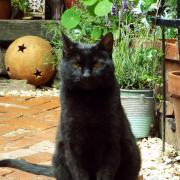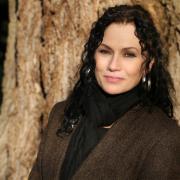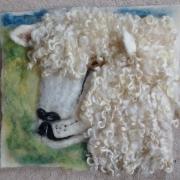Animal magic with the media vet and chef to pets
As well as dealing with all the domesticated species that come through the surgery door, vets also have to be ready to cope with any sick and injured wildlife that is brought in by members of the public. This usually involves injured birds, and the occasional small mammal such as hedgehogs, and these cases bring a whole different set of challenges compared to their domesticated cousins.
Take hedgehogs, for example. Just examining one of these spiny creatures requires special consideration, thanks to their reflex of rolling up into a ball when confronted with danger (and vets certainly fall into the hedgehog’s ‘danger’ category!), and the list of possible diagnoses to consider is very different to those we would look at for cats or dogs. Hedgehogs are very prone to injuries to their back legs, as well as being prone to ‘fly-strike’ (where maggots infest wounds and literally eat the animal alive), so when hedgehogs are brought in, these conditions are high on our list to consider, rather than the more common conditions affecting pets.
Learning how to approach these problems in wild animals can be hard, as they only make up a tiny fraction of the cases we see, and so it’s almost impossible to accumulate the experience and knowledge we build up over years of looking after pet animals. This is one of the main reasons why, in many cases, it’s not us vets who are the true experts in caring for wildlife – the real experts are often those dedicated volunteers who run wildlife sanctuaries. What these people lack in qualifications they make up for with years of experience in dealing with wild animals and are often far more knowledgeable on the practicalities of treating animals such as hedgehogs and wild birds than many vets (myself included!).
I remember meeting a really good example of this kind of person in the studios of The Wright Stuff years ago when I was in for my regular spot on the Channel 5 show. In addition to answering viewers’ questions live on air, we also often had one or two animals in the studio to talk about – and this time we were talking hedgehogs with a woman called Sue who runs South Essex Wildlife Hospital. She’d brought in a selection of the hundred or so hedgehogs she has under her care at the sanctuary, and was obviously a real expert on the species – and it wasn’t just the viewers who learnt a lot about hedgehogs during the show, I also picked up some great tips including her advice to always check inside the mouth of ill hedgehogs as fractures of the jaw are a common cause of serious health problems, which was not something I’d been aware of beforehand.
As well as talking passionately about hedgehogs, Sue also told me about her dedication to wildlife rescue and the way in which she had dedicated her whole life to looking after injured and ill wild animals.
READ MORE: How to help hedgehogs thrive.
‘I run the sanctuary from some outbuildings at the moment,’ she explained as we waited to go on the show, ‘but it’s getting very cramped so I’m planning to sell my house and use the proceeds to build a purpose-built wildlife hospital.’
I was really amazed by how completely dedicated Sue is to her cause – to the extent of selling her own house to pay for the new centre – and could only admire her commitment and passion. It’s true heroes like Sue who are really at the forefront of caring for our injured wildlife, rather than vets, so I would urge everyone to support these wonderful charities which are usually desperately short of funds and survive on a combination of sheer determination and willpower!
For hedgehog rescue in the Cotswolds, try Oak & Furrows and Wild Hogs Hedgehog Rescue.
Follow Joe on Twitter: @joethevet



























